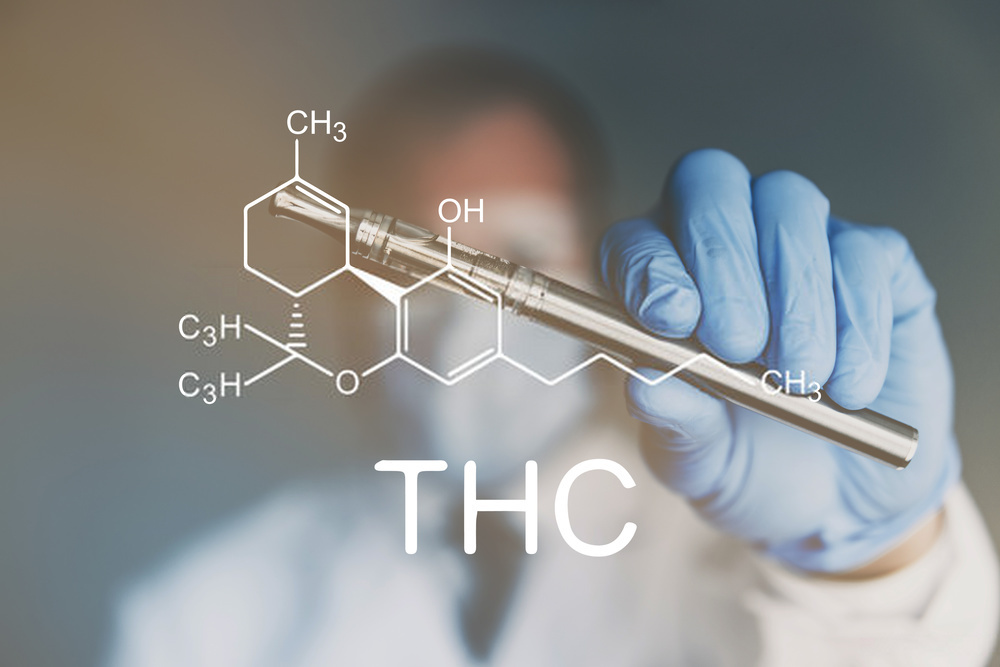The Top 5 Different Types of THC You Need to Know for Optimal Healing

If you’re new to the world of natural plant healing with THC, then you’ll quickly find out there’s a variety of cannabinoids found in cannabis plants. In addition to the THC we all know for its psychoactive highs, there are other types of THC that are just as beneficial for medical effects. So, what are the different types of weed you need to know to maximize medical marijuana efficacy? Keep reading to find out.
Cannabinoids 101
To fully understand the different types of THC, let’s brush up on some cannabinoid basics to find out how they produce their individual effects internally. Cannabis plants contain over 500 compounds, including at least 144 known cannabinoids. The major cannabinoids being CBD and THC, along with a plethora of minor cannabinoids we’re just now learning more about.
Each cannabinoid has its own unique molecular structure that interacts with our body’s endocannabinoid system or ECS. A system that wasn’t discovered until the 1990’s when cannabis research began to increase. Now, we have a better idea of what the ECS can do and how cannabis can be so influential for a wide variety of health effects.
At its core, the ECS is a network of neurotransmitters and receptors that communicate messages throughout the body and to all other physiological systems. The primary receptors being CB1 and CB2 which different cannabinoids influence, interact with, bind to, and attach to differently based upon their unique structures. The most important fact to know is the ECS has one goal in mind – to achieve homeostasis. Or, the overall feeling of well-being or feeling well.
That means, cannabinoids are able to influence a variety of body processes and everyday functions. Including sleep, appetite, pain, mood, anxiety, and more. Next, let’s dive deeper into the types of THC that are most commonly found in cannabis flower, and products to uncover how each works with the ECS individually for health effects and benefits.
Different Types of THC
While delta-9 THC is the major cannabinoid that’s most well-known for cannabis or medical marijuana’s effects, further research is proving other types of THC are just as beneficial. Below are the most common different types of THC you’ll find in cannabis products on the shelves today.
Delta-9 THC
The delta-9 analog of THC is the type of THC that’s found most abundantly in cannabis plants. Because delta-9 binds to the CB1 receptor primarily, it has the capability of producing mind-altering effects which is most commonly known as a high or buzz. These effects come from THC having a unique double bond on the molecular chain. For delta-9 THC, the double bond occurs on the 9th carbon. This bond allows delta-9 THC to be quite potent in its effects, when working with the ECS.
Most medical marijuana effects are produced by the delta-9 analog of THC. Including research that’s proving delta-9 THC can provide relief or treatment of:
- • Mood disorders, like anxiety, depression & PTSD
- • Glaucoma
- • Inflammation
- • Inflammatory bowel disease (IBD) and Irritable bowel syndrome (IBS)
- • Insomnia
- • Migraines
- • Multiple sclerosis
- • Muscle spasticity
- • Nausea
- • Pain
- • Low appetite
- • Seizures
Delta-8 THC
In comparison to delta-9 THC, delta-8 THC differs in just one pivotal way. The double bond on the molecular chain is on the 8th carbon vs the 9th. This key variance means the effects of delta-8 THC are far less potent or intense than delta-9. With some even referring to delta-8 THC as ‘diet weed’ or ‘marijuana lite’. In scientific terms, ‘This conformational change results in Δ8-THC binding less strongly to the CB1 receptor than Δ9-THC thereby decreasing its potency relative to that of Δ9-THC.’
The effects of delta-8 THC proven by anecdotal evidence and early studies include –
- • Antiemetic, AKA anti-nausea
- • Analgesic, AKA pain-relieving
- • Appetite stimulant
- • Neuroprotectant
- • Anxiolytic, AKA anti-anxiety
THCa
THCa is the precursor to THC and actually converts to THC, when combusted – or, the act of applying heat like you would with a lighter, torch or vape cart. On its own THCa does not have any psychoactive effects as it doesn’t interact directly with the CB1 receptor. THCa is found in abundance in cannabis trim, and fan leaves, which means it can also be consumed in its raw form. Like the trends of cannabis juicing, or smoothies.
What we know so far, is THCa has the following types of effects –
- • Anti-inflammatory
- • Neuroprotective
- • Antiemetic
- • Anti-proliferative, as noted by studies in prostate cancer
THCv
THCv is by far the least known type of THC, but is quickly gaining notoriety for a wide range of effects. It’s produced as a byproduct from the breakdown of THCa and is similar to delta-9 THC with psychoactive effects due to interacting and influencing the CB1 receptors. Although in comparison to delta-9 THC, THCv is found in far lesser quantities in most cannabis products.
Early studies are proving that THCv is capable of producing the following benefits –
- • Regulates blood sugar and reduces insulin resistance, in conditions like diabetes
- • May help reduce panic attack symptoms
- • Stimulates bone growth
- • Can improve tremors, motor control, and brain lesions associated with Alzheimer’s
All about Indica & Sativa
The terms indica and sativa are often used at medical marijuana dispensaries as broad classifications of two types of weed. While indica and sativa don’t reference the types of THC that the weed will contain, they do classify a general consensus of what types of effects you’ll receive from the two different types of cannabis plants. Here’s a simple breakdown to help answer the questions – what are the two types of weed and which is ideal for your specific conditions or healing routines.
Indica – Indica strains deliver more of a body high, that’s suitable for relaxation, relieving chronic pain and insomnia-like symptoms. They’re often used for nighttime use to promote rest and recovery.
Sativa – Sativa strains deliver more of a head high, that provide mental clarity, alertness and uplift the moods with euphoric types of effects. They’re most often used during the day to provide energy, while still producing medical benefits for relief.
Keep in mind, with the advancements of cannabis breeding now there are also ‘hybrid’ strains that are cross-breeds of indica or sativa genetics. Hybrid genetics are harder to determine exact effects or benefits but are often dominant in either indica or sativa effects. So, if you decide to purchase a hybrid strain for medical marijuana use it’s best to ask the dispensary staff about its effects individually or do your own research by finding the answers online.
The Final Word on Types of THC
Now that you have a complete breakdown of the different types of THC, and different types of weed you can improve your medical marijuana routines to work for you. By learning the in’s and out’s of each cannabinoid and its unique benefits, you’ll be better equipped to purchase the types of THC that work best for you. If you’ve yet to receive approval for your medical marijuana card in Florida, look no further than MCCFL. Schedule an appointment for comprehensive care and let our helpful staff streamline the approval process to begin healing with cannabis, now.

